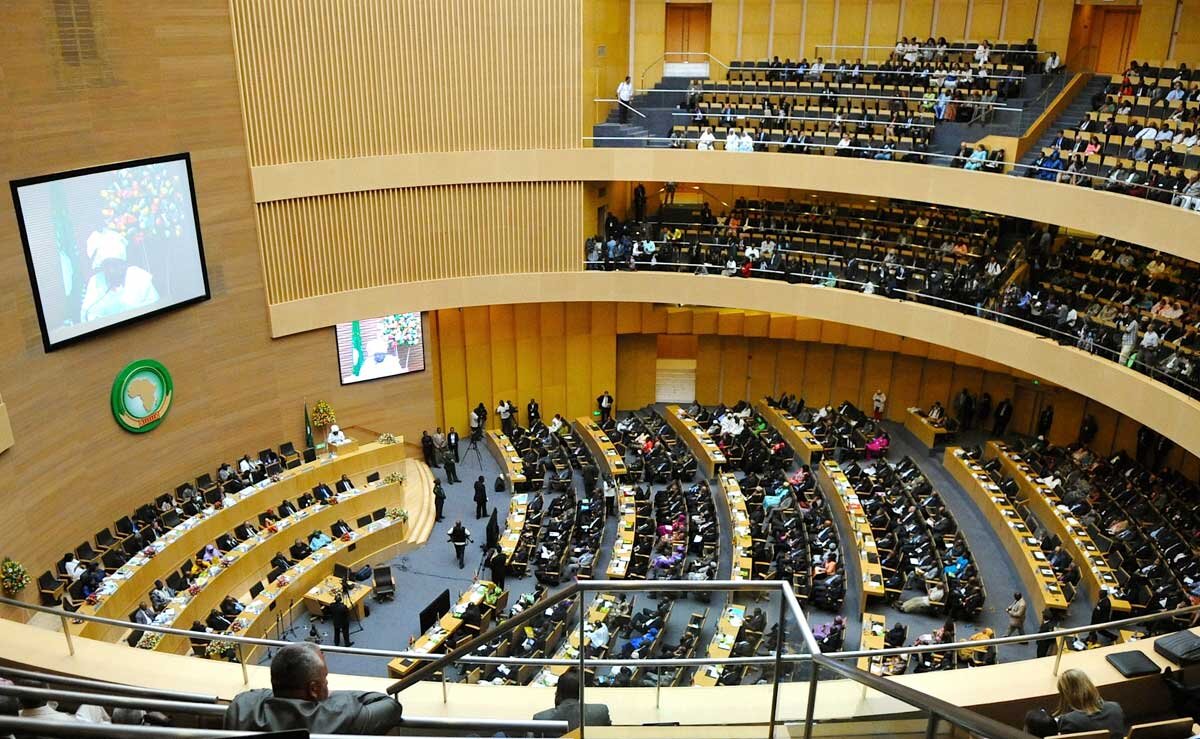Israeli Ambassador Expelled from Rwanda Genocide Conference by African Union: A Controversial Diplomatic Move
The recent expulsion of an Israeli ambassador from an African Union conference has sparked significant discussion and highlights ongoing tensions related to the Palestinian cause. The event, commemorating the Rwanda genocide, took place in Addis Ababa, Ethiopia, and was marked by diplomatic controversies.
On Monday, the African Union (AU) expelled Avraham Neguise, Israel’s Ambassador to Ethiopia, from the conference. This action was taken after several member states expressed their refusal to participate alongside him. According to reports from The New Arab, the decision reflects the AU’s ongoing commitment to its principles regarding the Palestinian struggle.
Here are some key points surrounding this incident:
- The expulsion was celebrated by Hamas, which stated that the action is consistent with the AU’s values and historical support for the Palestinian people.
- Hamas called for a “comprehensive boycott” of Israel, emphasizing the need to prevent the nation from using international platforms to “whitewash its crimes” against Palestinians.
- Israel faces serious allegations at the International Court of Justice (ICJ), where it is accused of committing genocide against Palestinians, a case brought forth by AU member state South Africa.
- Earlier this year, an Israeli diplomat was also expelled from the 36th African Union summit of heads of state in Ethiopia.
The annual conference serves to commemorate the 1994 genocide against the Tutsi in Rwanda. Its purpose is not only to remember the tragic loss of life but also to foster a renewed commitment to human rights and the value of humanity. The presence of an Israeli representative at such a significant event raised eyebrows, given the AU’s historical stance on issues related to Palestine and Israel.
The African Union’s decision to remove the ambassador underscores the complexities of diplomatic relations and the ongoing debates surrounding international support for Palestine. Many member states are vocal about their adherence to principles that prioritize human rights and justice, particularly in contexts involving colonial histories.
In recent years, the AU has consistently voiced its support for Palestine, aligning with global movements that advocate for the rights of Palestinian people. The AU’s actions are seen as a reaffirmation of its commitment to social justice, reflecting broader sentiments across the continent.
Moreover, this incident is part of a larger narrative involving Israel’s diplomatic relations with African nations. Historically, Israel has sought to strengthen ties with African countries, but these efforts often face significant challenges due to the ongoing Israeli-Palestinian conflict.
As the international community continues to scrutinize Israel’s policies and actions, the AU’s stance reaffirms its position on the Palestinian issue. The organization has long supported the establishment of an independent Palestinian state and has condemned actions that it perceives as violations of human rights.
In conclusion, the expulsion of the Israeli ambassador from the African Union conference not only highlights the ongoing tensions surrounding the Palestinian cause but also emphasizes the AU’s dedication to its founding principles. The call from Hamas for a comprehensive boycott of Israel resonates with many member states, illustrating a unified front in support of Palestinian rights.
As the discourse surrounding this issue evolves, it remains crucial for international bodies to engage in dialogue that promotes understanding and peace, rather than division. The AU’s actions serve as a reminder of the importance of solidarity in the pursuit of justice and human rights for all oppressed peoples.






